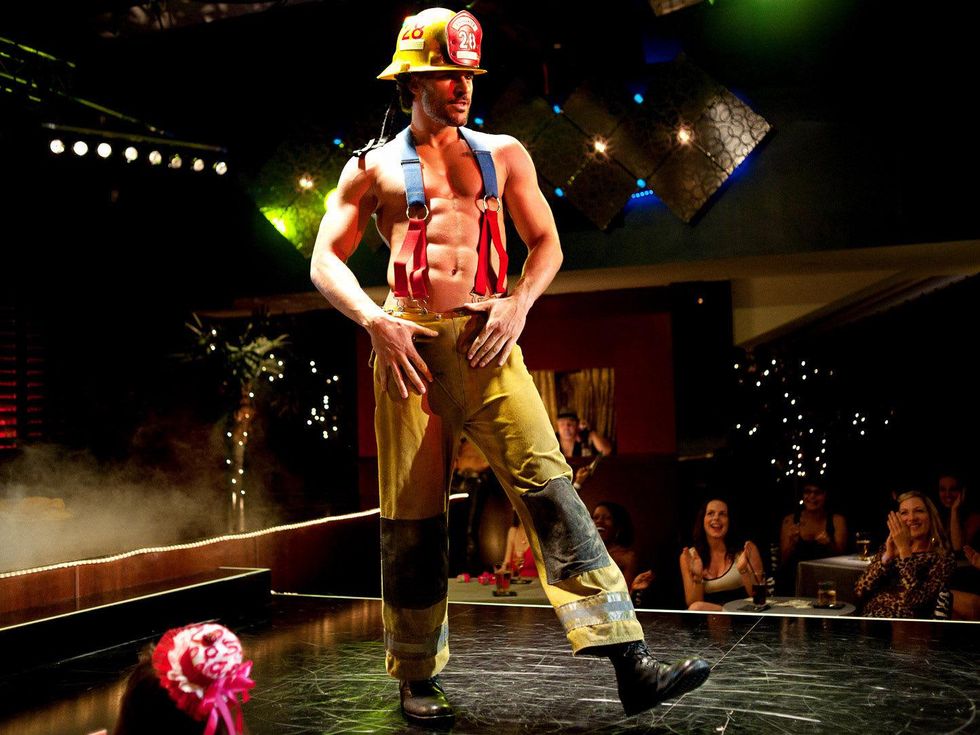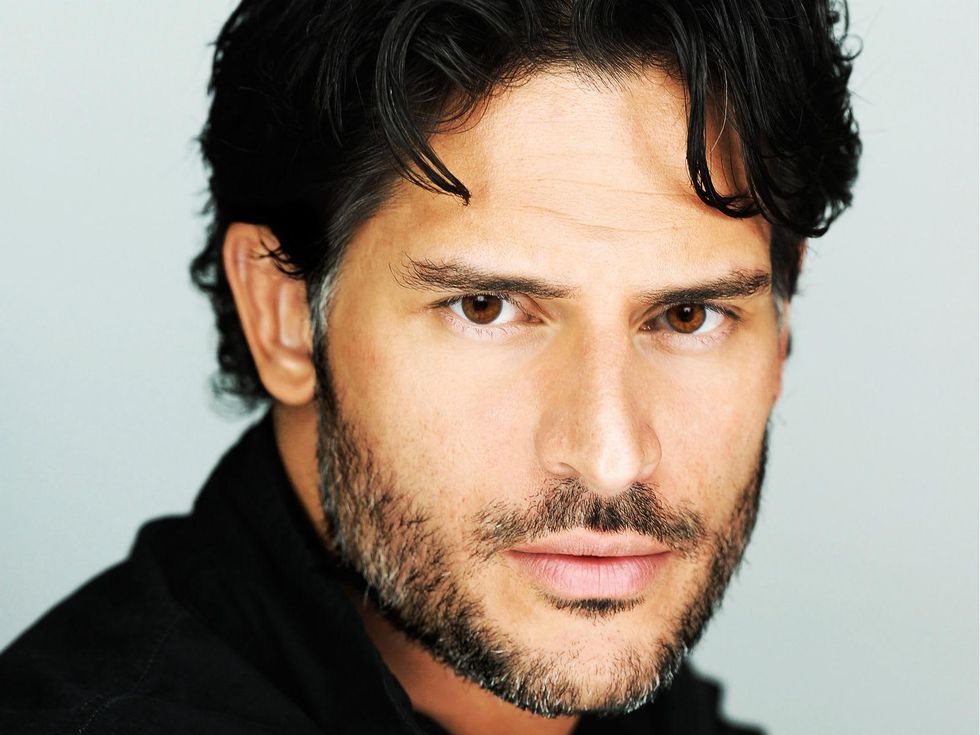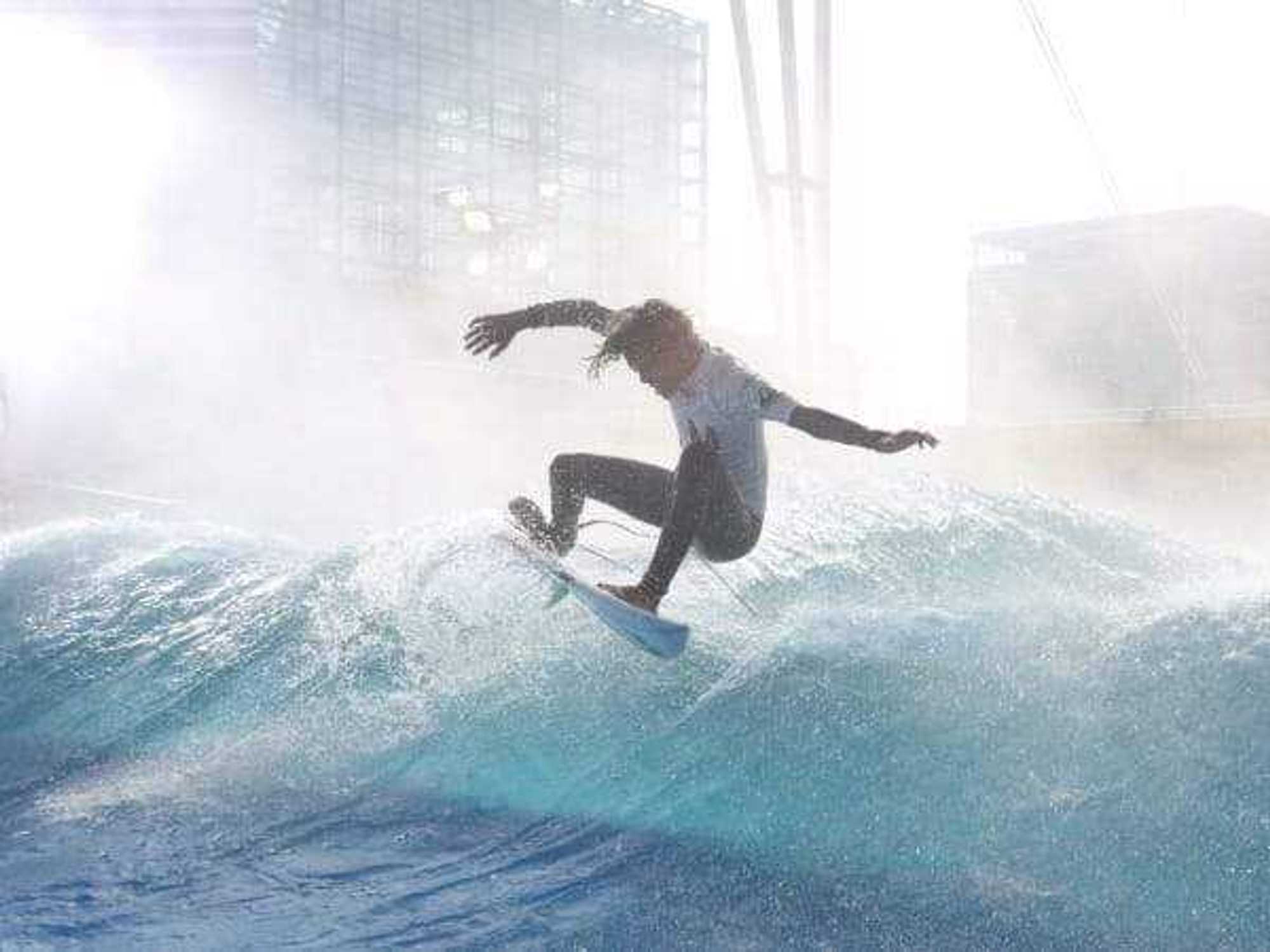Dallas Club Revealed
Joe Manganiello swears audiences will love every stripper in La Bare documentary
Prior to to playing Big Dick Richie in Steven Soderbergh's 2012 film Magic Mike, Joe Manganiello had never really considered the world of male dancers. But after doing research for the film and then being put through the paces alongside the likes of Channing Tatum and Matthew McConaughey, Manganiello knew the world was much more than meets the eye.
Soon thereafter, he, along with his brother Nick, set out to make a documentary about male dancers, choosing a club that's near and dear to many locals' hearts, LaBare Dallas. In advance of the opening of La Bare on June 27, Manganiello sat down with us to talk about the film, what he learned about the world of male strip clubs and why you should never judge a book by its cover.
CultureMap: Why exactly did you decide to make a documentary about male dancers?
Joe Manganiello: Magic Mike opened my eyes to a world I knew nothing about, and really thought I knew about, or thought I had heard about from this person or that person. It was all completely unsupported and really filed under the drawer of “contempt prior to investigation.”
“Magic Mike opened my eyes to a world I knew nothing about,” director Joe Manganiello says.
Through Magic Mike and through a good friend of mine who happened to have worked at LaBare Dallas during the ’90s, I realized it wasn’t what I thought at all. It was more a sex, drugs and rock ’n’ roll of a story than anything else. It didn’t resemble female stripping at all.
When Magic Mike was over, I was having tons and tons of conversations with people about men and women, and how female strip clubs are so different from male strip clubs. And I realized no one had ever taken a camera inside and gotten access the way that I could because of the street cred of Magic Mike.
CultureMap: So you had a friend who worked here — is that the reason why you choose La Bare Dallas as your location? Or was there any other reason?
JM: I wanted as close to a scientific test group as I could get. I thought Vegas had too much of its own personality. It just seemed a bit sleazy. That town has its own vibe.
LA — I didn’t want a group of out-of-work actors. God knows we’ve seen that enough already on every reality show. And Miami has its own flavor, New York has its own flavor. If the heart of this film and this discussion is men and women and how we’re different — and I think there’s a formula to men turning women on — I wanted to get as close to real men as possible.
I thought Texas — Dallas — was the perfect place for that. Other than the fact that I knew we were going to get cowboy routines, which were pretty funny.
CultureMap: What surprised you the most about male dancers as you were doing the project?
JM: How likable they were. How open-hearted they were, the access they gave me. I’ve become friends with all of these guys. I really honestly just like them all. And I think if we would’ve filmed at any other club, that wouldn’t have been the case.
“I wanted to get as close to real men as possible, and I thought Dallas was the perfect place for that.”
You talk about family values? Randy, the Master Blaster (one of the LaBare Dallas dancers), and his mom, Mary Lou — to me, it was the same feeling as when I watched The Osbournes. You realized how much that family loves each other. Normal is relative, obviously, but there’s a love in that house.
Randy loves his mom, and his mom loves him, and she’s his cheerleader and runs his strip-o-gram company. She’s just cheering him on and is his biggest supporter and fan. It’s awesome to watch that.
You go in not wanting to like these guys, but you walk out loving all of them.
CultureMap: I was struck by the amateur night, the big difference between them and the professional dancers — not just the quality, but their attitude toward it. How was it getting to know those guys and see how they approached it?
JM: They’re so funny! They’re so confident. You love how aggressively and how badly they want it. I think that that makes for good entertainment. Half measures are not interesting to watch. These guys, they would do anything for this job. And there is a chasm of difference between the amateurs and the pros.
We were so lucky with this documentary. We just had the cameras pointed in the right direction, and we caught these once-in-a-lifetime moments. We could’ve shown up for 10 years of amateur nights every Thursday and not gotten the story that we got that night.
I mean, that guy doing the cartwheels. People were screaming like it was Jaws coming out of the water (laughs).
CultureMap: After the gloss of Magic Mike, it seemed like you tried de-glamorize the profession. Was that your intention?
JM: Hey, listen man, backstage in Magic Mike, we were in a dirty-ass kitchen, so don’t even act like that was glamorous, because that was a low, low, low budget.
I remember taking my shirt off to do my first dance routine on set with the guys, and Soderbergh said, “What the fuck is that, CGI?” And I went, “Well, we’re low budget. I didn’t think we had the budget for fake abs.” That was the whole joke — I’m working out so hard because we didn’t have the budget for like 300 or something.
“We were so lucky with this documentary. We just had the cameras pointed in the right direction, and we caught these once-in-a-lifetime moments.”
I wanted the documentary to be raw, man. I wanted it to feel raw to the viewer. I wanted them to know that this was not cast, to know this wasn’t written out, this wasn’t planned, this wasn’t rehearsed, this wasn’t tampered with.
But you really have to give credit to our DP, Andrew Wheeler — that guy shot an unbelievable movie. The grime on the floor, the crack in the mirror, really showing it for what it was. We shot it with a Canon C300 because it sees well in the dark, so we didn’t have to alter the lighting for us. We didn’t want to alter anything; we just wanted to capture it as it was.
CultureMap: What do you hope audiences get out of the movie? Is there any message coming out of it?
JM: Don’t judge a book by its cover. Don’t think you know something when you don’t. Everybody thinks that everything has been done and every story has been told and everything’s been explored. Obviously it hasn’t.
I really want audiences to come out and on the car ride home, get into these talks about how men and women are different. No matter how much we do to say that we’re all the same, on a neurological and a biological level, we’re different.
We’re always going to be different, and we’re going to be turned on by different things. Rather than fight about it, it’s about understanding the other side and trying to get better at pleasing the other side.
These guys work their tails off to please women and learn how to please women. There’s something to be learned from every single one of those guys. I sat with Randy for hours on camera, and I was like, “What do you know about women? What would want to tell married guys?”
It’s just really simple: Treat them like a queen. Tell them they’re beautiful. Hold the door open. Make them feel wanted. Make them feel special.
CultureMap: What can you tell us about Magic Mike XXL?
JM: We’re going to shoot in the fall. We’re going to get the band back together — it’s a road trip movie. All the guys have seen La Bare, and they’re all stoked. I saw some video clip of Channing on the red carpet for 22 Jump Street just going nuts about La Bare, telling everybody to see it.
I’m excited about that — those are my friends, man. I’ve never had more fun than I had filming that movie, so I’m excited to get back in there.
CultureMap: Are you going to have to work as hard or are you able to afford CGI this time?
JM: No, we still don’t have the budget for that, but I wouldn’t have it any other way, man. I don’t mess with that stuff.


